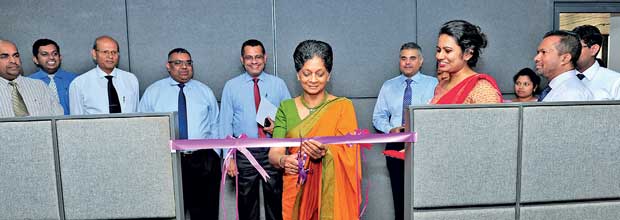18 Jan 2018 - {{hitsCtrl.values.hits}}

The rubber product sector has been identified as a trust industry, which has a potential to contribute markedly to the export revenue and establish a reputation for quality and reliability. Sri Lanka produces a wide variety of value-added rubber products from both latex and dry rubber such as solid tyres, latex gloves, rubber bands, extrusions, beadings, mats, miscellaneous sports goods, etc. by processing raw rubber for export.
The rubber products industry is a key sector contributing 6.9 percent to exports in 2016. The major markets are the USA, UK, Germany, Belgium, Italy, Canada and Brazil. Sri Lanka supplies to major international brands such as Continental, Solideal, Wonder Grip, Mapa and Safety Work, Tesco, etc.
The companies in the rubber industry use state-of-the-art technologies for manufacturing the above international brands. The tyre sector accounts for the largest share of turnover (60 percent) of rubber exports; they include solid tyres, pneumatic tyres, bicycle tyres, three-wheeler tyres and a variety of smaller tyre categories. Currently Sri Lanka is considered as the global leader in solid tyres, which accounts for over 20 percent of the global demand and rubber glove caters to over 7 percent of the global demand.
The Export Development Board (EDB) has implemented several programmes to assist the rubber industry in the past years such as the system development programme to obtain the ISO 14001 and 50001 certifications, technical training and exposure programmes in the UK and Malaysia, financial schemes to obtain relevant certifications/testing not available in Sri Lanka, trade fair participation and business-to-business (B2B) meetings in several countries.
The EDB, in collaboration with the Asian Development Bank (ADB), carried out a study that the most of the companies were small and medium enterprises (SMEs) and identified the issues encountered by the companies in their value chains. One of the issues identified by the study was that individually they are in a weak position to address some common issues prevailing in the value chain. Therefore, it was proposed that collective effort might bring solutions that could be executed through the cluster development and financing approach accepted worldwide.
Giving impetus to the rapid adoption of the ‘collaborate to compete’ theme, Sri Lanka has embraced a novel concept known as ‘Special Purpose Vehicle Entity’, simply referred to as SPV, a new economic collaboration platform that connects corporates with homogenous needs, competencies and business interests with the aim of mutual prosperity.
Aligning to the above observation, the EDB, together with the ADB and rubber sector stakeholders, undertook the pioneering initiative to establish SME clusters by way of formation of a SPV entity, which has been a widely adopted mechanism across the global context.
Following the above framework, five Sri Lankan rubber products exporters have marked a new chapter in the country’s business economy by coming together to form a business alliance under the umbrella of an SPV named Lanka Rubber Global Consortium (Pvt.) Ltd (LRGC), which was officially launched on May 18, 2017.
LRGC is duly incorporated as a SPV to engage collaboratively in business activities pertaining to value chain development and supply chain management processes in polymer and allied industries with a view to remain competitive in global markets in a sustainable manner.
For the first time in Sri Lanka, the consortium has brought together rubber sector manufacturers, exporters, the EDB, ADB, rubber sector consultants from local and foreign domains and many other stakeholders around a single entity.
The consortium consists of five rubber sector companies namely, Jafferjee Brothers Exports (Pvt.) Ltd, Polymer Products Impex (Pvt.) Ltd, Sinwa Holdings (Ltd.), Textrip (Pvt.) Ltd and Microcells (Pvt.) Ltd.
LRGC, in addition to encouraging the collective strength channelling among the Sri Lankan rubber sector manufactures, raises the bar of ‘operational excellence’ in the Sri Lankan rubber sector by allowing the local brands to benchmark with the global standards and industry best practices, which ultimately enhances the status of the rubber industry in the country.
The consortium’s office will operate from the EDB building and a memorandum of understanding (MoU) was signed between the EDB and LRGC on December 8, 2017 in this regard.
The goal of the consortium is to strengthen the rubber value chain, which would result in building a global brand for Sri Lankan rubber products and to become a dynamic one-stop shop for all buyers, investors and other interested stakeholders.
LRGC’s main activities would be to collaboratively improve export competitiveness of rubber products by jointly setting up of a finite element analysis centre, joint venture manufacturing, building forward and backward linkages in the rubber value chain, joint product development and research and development facilities, which result in improving the overall growth of the entire rubber value chain.
20 Nov 2024 20 minute ago
20 Nov 2024 45 minute ago
20 Nov 2024 48 minute ago
20 Nov 2024 1 hours ago
20 Nov 2024 2 hours ago